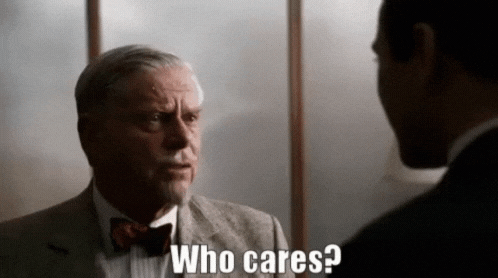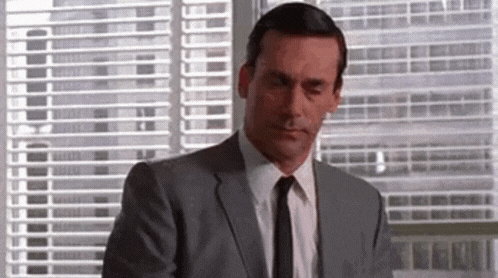5 Things We’ve Learned About Marketing From Re-Watching Mad Men

5 Things We’ve Learned About Marketing From Re-Watching Mad Men
“If you don’t like what is being said… change the conversation.”
If only we could all be as charismatic as Don Draper. Played with magnetic intensity by the impossibly-chiselled Jon Hamm, the suave creative director and main marketing man of AMC’s award-winning Mad Men always knew just what to say at exactly the right moment.
The show last aired eight years ago this month, but it remains incredible just how profound some of its marketing-related insights are. Widely regarded as one of the greatest TV shows ever made, it’s a masterclass in razor-sharp dialogue and subtle nuances.
For anyone who hasn’t seen the show, Draper was the fast-living, hard-drinking former soldier turned ad man who, over seven memorable quip-filled seasons set against the backdrop of the 1960s, helped put a succession of advertising agencies firmly on the Madison Avenue map.
But while Draper’s brooding persona and cutting turn-of-phrase owed much to the genius of the show’s scriptwriters, there’s no denying Mad Men provided plenty of other useful takeaways.
Much has changed in marketing departments since Mad Men’s time, but the show had a lot to say about the power of advertising and the art of selling.
So what can we still learn from a marketing viewpoint from a series that last aired almost eight years ago? Plenty…
If there’s a recurring theme to one of the most complex TV characters ever created, it’s that you’re in charge of your own identity.
Don Draper may be paid handsomely for his advertising instincts, but few at his firm are aware of his shadowy past or real identity. A one-time soldier named Richard ‘Dick’ Whitman, Draper switched dog tags and assumed the identity of his former lieutenant when his unit was ambushed and the real Draper was killed during the Korean War.
Accused of desertion by colleague Pete Campbell in a drama-charged meeting with Sterling Cooper’s senior partner Bert Cooper, the elderly figurehead produced one of the show’s most memorable lines.
“Who cares?” replies Cooper.
He tells Campbell there’s more profit to be made from simply forgetting Draper’s alleged indiscretions, with the man formerly known as Dick Whitman having already transformed into one of the most sought-after creative directors in New York.

Here’s an incredible true story from the show: in 2017, ketchup giant Heinz actually used one of Don Draper’s marketing campaigns in real life.
One of Draper and his creative team’s most memorable concepts, the ‘Pass The Heinz’ campaign didn’t even get the go-ahead from the client – who was concerned by the lack of an actual sauce bottle in the ad.
But therein lies the genius of Draper’s concept. He wasn’t selling the product, he was selling an idea. In doing so, he elevated a simple condiment from being an everyday household item into a philosophical way of life.
‘Pass the Heinz’ was such a clever tagline that 50 years after the show’s setting, the company actually decided to run the ads on billboards and in newspaper ads in New York.
There’s your headline: don’t sell the product, sell the idea.
“Nostalgia. It’s delicate… but potent,” Draper tells a room of Kodak executives as part of a creative pitch for their new photo projector, which they’ve dubbed The Wheel.
As he methodically clicks through a carousel of candid family photos, Draper informs the room that “in Greek, nostalgia literally means the pain of an old wound”.
Lingering on photos of his wife Betty and two children – while on the home front, his marriage is crumbling around him – Draper tells his captivated audience “nostalgia is a twinge in your heart… far more power than memory alone”.
“This device isn’t a spaceship… it’s a time machine. It goes backwards and forwards. It takes us to a place where we ache to go again.
“It’s not called The Wheel… it’s called The Carousel,” Draper tells his stunned audience.
“It lets us travel the way a child travels, around and around, and back home again to a place where we know we are loved.”
It’s one of the show’s most memorable scenes – and a powerful reminder that to sell something, it helps to create an emotional connection.
“You’re not an artist, Peggy. You solve problems,” Draper tells his protégé and copywriter, Peggy Olson.
Everyone wants their problems to be solved. In a digital age awash with products and services – not to mention content – it’s hard to cut through the noise and find a willing audience.
Yet for all the boozy lunches disguised as market research and subconscious nods to the art of storytelling, one of the most important lessons to take from Mad Men is simply to be a problem-solver.
It’s a simple concept that drives so many of the show’s most memorable campaigns and concepts.
And while actually solving problems might be easier said than done – we live in the real world, after all, not a fictional TV show – the most effective marketing almost always identifies a problem… and then proposes the solution.

If there’s one thing Draper made frequent use of in meetings, it’s silence.
Sure, he leaned heavily on his creative team to help him through pitches to clients. But there’s a reason so many editorials floating around the web focus on his body language and speech.
And if there’s one thing Draper knew intrinsically, it was when to stop talking. How many times have we seen him conclude a meeting by simply standing up and walking out?
While we can’t all simply terminate a meeting whenever we choose – no matter how often we might fantasise about it – there’s an undeniable power behind knowing when to stop talking.
As we once wrote, there’s nothing wrong with being quiet in meetings. It’s about making your words count – something Don Draper did in spades.
While it would certainly be interesting to see how Draper and his team of creatives fared in today’s data-driven digital age, that’s where Hunt & Hawk comes in. We do branding, sales, and marketing for the modern era – so drop us a line at hello@huntandhawk.com and let’s chat.